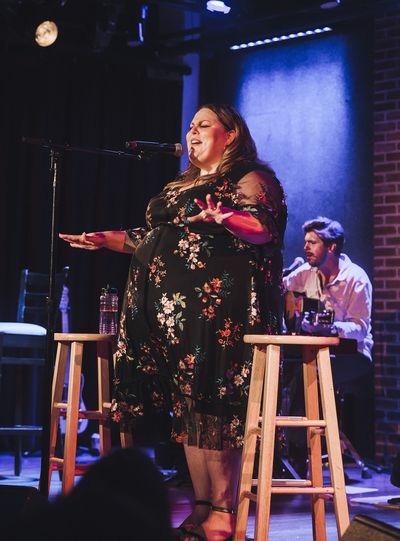While Juneteenth was a major focus for many black Americans in June, another celebration — Black Music Month — has also caught their attention.
Also known as African-American Music Appreciation Month, the designation was created by President Jimmy Carter in 1979 and officially sanctioned as a national, month-long observance in 2000.
Black Music Appreciation Month and its celebration are “intricately woven into our nation’s tapestry,” President Biden said when he issued a June 2 proclamation of recognition.
“Perhaps no music has had such a profound and powerful impact on shaping the American musical score as black music,” President Biden said. “For generations, black music has conveyed to Ms. Meeks the hopes and struggles of a resilient people—spirituals who mourn the original sin of slavery and later herald freedom from bondage, harsh truths told through jazz and the sounds of Motown during the civil rights movement . and hip-hop and rhythm and blues that remind us of the work that lies ahead.”
In fact, black music spans the entire gamut of musical genres, which also includes spirituals, blues, pop, and rock ‘n’ roll. From churches, concert halls, civil rights rallies, and backyard barbecues, black music is a universal rallying cry that can uplift souls and soothe spirits.
Richmond has no shortage of black musicians and black music fans.
“Black music has a global presence and is multidimensional,” said jazz artist and singer Sharon Rae North, a former Richmond resident now based in Northern Virginia.
Ms. North, who sings jazz (straightforward, contemporary, smooth, standards), was a 2017 first-choice contender in the Best Jazz Vocal Album category for the 59th Annual Grammy Awards, earning two songs on Billboard’s Smooth Jazz Charts.
She pays homage to musicians who came before her and recognizes the early legal barriers and social challenges faced by industry contributors such as Don Shirley, Billie Holiday, Sammy Davis Jr., Nat King Cole, Pearl Bailey, Earl Gardner and Sister Rosetta Tharpe on.
“Despite their tremendous talent, they were beaten up, denied access to shelters, forced to use separate entrances from whites and received less money,” Ms. North said. “Nevertheless, these artists, who have performed and released music from almost every part of the world in many languages, have persevered and left a tremendous legacy of music that has not only been enjoyed by black people. They made a difference and paved the way for the rest of us.”
Marsha Meekins is a classically trained musician and jazz enthusiast who founded The Jazz Ladies, an all-female jazz ensemble, in 1983.
She credits the Richmond Jazz Society’s jazz sessions in the late 1970s with sparking her interest in the genre.
“I started walking and listening and asking questions and eventually sitting (at Jazz Society sessions). In no time I started playing with the band Chapter Two in Petersburg. Then in 1981 I formed my own ensemble called Wave,” Ms. Meekins recalled. “I would like to highlight a few musicians who helped me when I first started playing jazz. Namely Debo Dabney, Jim Coles, Hannon Lane, Plunky Branch, Glennroy Bailey, Pearl White and many others.
Ms Meekins said she “still does my thing with The Marsha Meekins & Company Jazz Band” and performs at 6 p.m. at the Virginia Museum of Fine Arts. on July 6th.
Kemel Patton, who uses music as motivation and therapy when leading his line dancing events across Richmond, has a special place in his heart for Mr. Branch.
“Plunky (James Branch) is one of my all time favorite musicians who has pushed the boundaries of all genres to teach, entertain, encourage and motivate. His music makes you dance, sing and act.”



